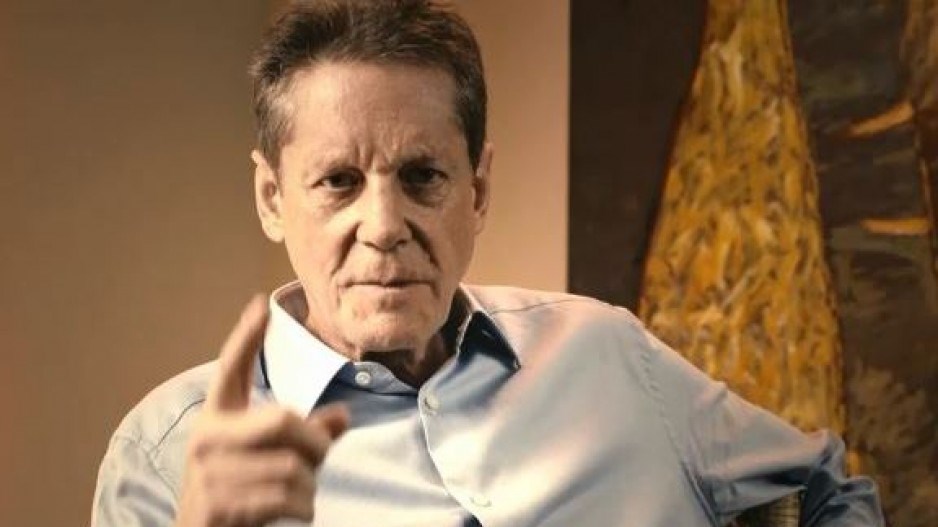Vancouver-based Ivanhoe Mines (TSX:IVN, OTCQX: IVPAF) is hitting back today at an American activist group co-founded by American actor George Clooney that hints at corruption in the company’s activities in the Democratic Republic of the Congo (DRC).
Meanwhile, a law firm representing shareholders is considering a class action lawsuit against the organization.
Ivanhoe’s shares dropped 11% December 15, following the publication of a Globe and Mail story and a report by The Sentry on the company’s dealings in the DRC. Ivanhoe on Monday released a detailed response to The Sentry report.
The Sentry report, Gaming the System, How a Canadian mining giant undermined the law in the DRC, suggests Ivanhoe benefitted from political favouritism and cronyism in the renewal of exploration leases.
The Sentry is a human rights group co-founded by actor George Clooney and John Prendergast – an American human rights activist and former director for African affairs at the American National Security Council. The Sentry describes itself as “an investigative and policy organization that seeks to disable predatory networks that benefit from violent conflict, repression and kleptocracy.”
Sentry senior investigator Douglas Gillison writes in a 45-page report of “worrying signs of corruption” in Ivanhoe’s dealings in the DRC, where it co-owns the Kamoa-Kakula Mining Complex.
Ivanhoe says the reports “lack any tangible evidence that misconduct occurred.”
“The Sentry report attempts to frame a series of corporate transactions in a way that could mislead readers into believing that Ivanhoe Mines participated in some form of corporate malfeasance," Ivanhoe says in its response. "The Sentry report resorts to the use of qualifying phrases, including ‘it appears,’ and ‘concerns of corruption’ while stating that it ‘could not conclusively indicate’ that certain events did take place.'”
The strongest evidence in the report of any potential corrupt activities is the reference to a search warrant executed by the RCMP on Ivanhoe’s head office in Vancouver in November 2021, something Ivanhoe says it publicly disclosed on March 30, 2022.
The search warrant related to transactions between Ivanhoe and a Swiss electrical engineering firm, Stucky Ltd., Stucky Technologies and the DRC state-owned power company, Société Nationale d’Electricité.
It was reported that RCMP had reasonable grounds to believe the company may have violated the Canadian Criminal Code and Corruption of Foreign Officials Act. Ivanhoe says it continues to cooperate with the RCMP.
“Ivanhoe Mines re-iterates that no charges have been laid against the company, or any of its directors, officers, or employees, and no financial provision has been made in relation to this matter,” Ivanhoe says in its response.
As for Ivanhoe’s business dealings in the DRC, the Sentry report says a top Ivanhoe executive arranged to share “apotentially lucrative cut of local subsidiaries” with a Congolese businessman who had a business relationship with a brother of a former president at a time when the Congolese government “took apparently illegal actions that preserved the heart of one of Ivanhoe’s ‘key assets.’”
The assets in question were mining claims that were due to expire for Ivanhoe’s Western Foreland Exploration Project.
“This has allowed the publicly traded company to hold on to exploration licenses that, by law, it should have surrendered years ago, having apparently only recognized their value right before they were due to expire,” the Sentry report says.
In its response, Ivanhoe says the Sentry report fundamentally doesn’t understand DRC mining laws and the mining industry in general.
Ivanhoe staked claims in the DRC in 1997, and went on to develop what has been called one of the world’s largest copper deposits – the Kamoa-Kakula mining complex -- a joint venture between Ivanhoe, the Zijin Mining Group and the Government of the DRC, which owns a 20% interest.
As for the Western Foreland exploration project, adjacent to the Kamoa-Kakula mine, Ivanhoe says it has invested $100 million in the region building roads, doing exploratory drilling and training local Congolese. To date, it has not advanced beyond the exploration stage.
The Sentry report questions how and why Ivanhoe was able to get extensions on the leases, when they were due to expire, and suggests it was due to connections with officials and friends close to the government.
“Sentry seems to not contemplate that Ivanhoe Mines was granted exploration licences by the DRC government because it applied legally and followed the regulatory process as prescribed by the mining code and was potentially given credit for its distinguished track record of exploration success globally, “Ivanhoe says.
As part of its response, Ivanhoe founder and executive co-chairman Robert Friedland has invited "contributors" to The Sentry to come to the DRC to see first-hand how it operates there.
Meanwhile, some Ivanhoe investors have retained a law firm, Kalloghlian Myers LLP, to investigate a potential class action law suit.
“The investigation arises from a December 15, 2022 report issued by The Sentry raising questions about corruption at Ivanhoe’s operations in the Democratic Republic of Congo,” the law firm said in a release. “On this announcement, Ivanhoe’s share price fell by almost 10%.”



